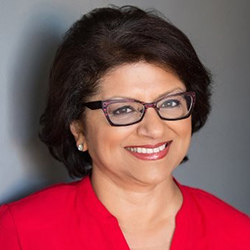There were just three of us on the plane from Minnesota to Washington, DC, one week after September 11, 2001. The Pentagon and the World Trade Center had been attacked, and the "20th hijacker" arrested in connection with the attacks had been taking flight training courses in Minnesota, where I was based. Although only one of the terrorists entered the United States on a student visa, international students nationwide became a key security concern as the government moved quickly to secure our borders. It was a frightening and challenging time for international educators.
In 2001, I was president of NAFSA and knew the association had a key role to play. Now, COVID-19 again threatens global mobility, with worldwide economic failure, closing of borders, and growing xenophobia.
Let me share what NAFSA did in 2001 to engender hope. First, we aimed to allay the concerns of our members, who were now viewed with growing suspicion and saw their employment in jeopardy. Members received regular messages of empathy and concrete suggestions for actions they could take at the local and state levels. Second, we launched an aggressive public communication and policy campaign on behalf of the field of international education. Staff did stellar work on Capitol Hill to be included in immigration and security planning, and our input contributed to key immigration legislation. We succeeded in educating the world that international students were key to our security. This is a very different narrative than the media originally promoted, and shaping this message helped NAFSA protect the international student program.
Members were energized as NAFSA raised the profile of international exchange and touted its benefits in a precarious political climate.
More than ever, the world now needs our vision of international education as a crucial buffer to xenophobia and narrowing perspectives. We live and work in a global community, and solutions (just like infections) are not bounded by borders. COVID-19 will bring paradigmatic change to both education and mobility, and I believe international educators specifically have the skills to create new solutions.
In 2001, we kept front and center our belief that international education is at the core of an interconnected world characterized by peace, security, and well-being for all. NAFSAns can do the same today and continue to lead.
June Noronha served as NAFSA president and chair of the board of directors from 2001-2003.

